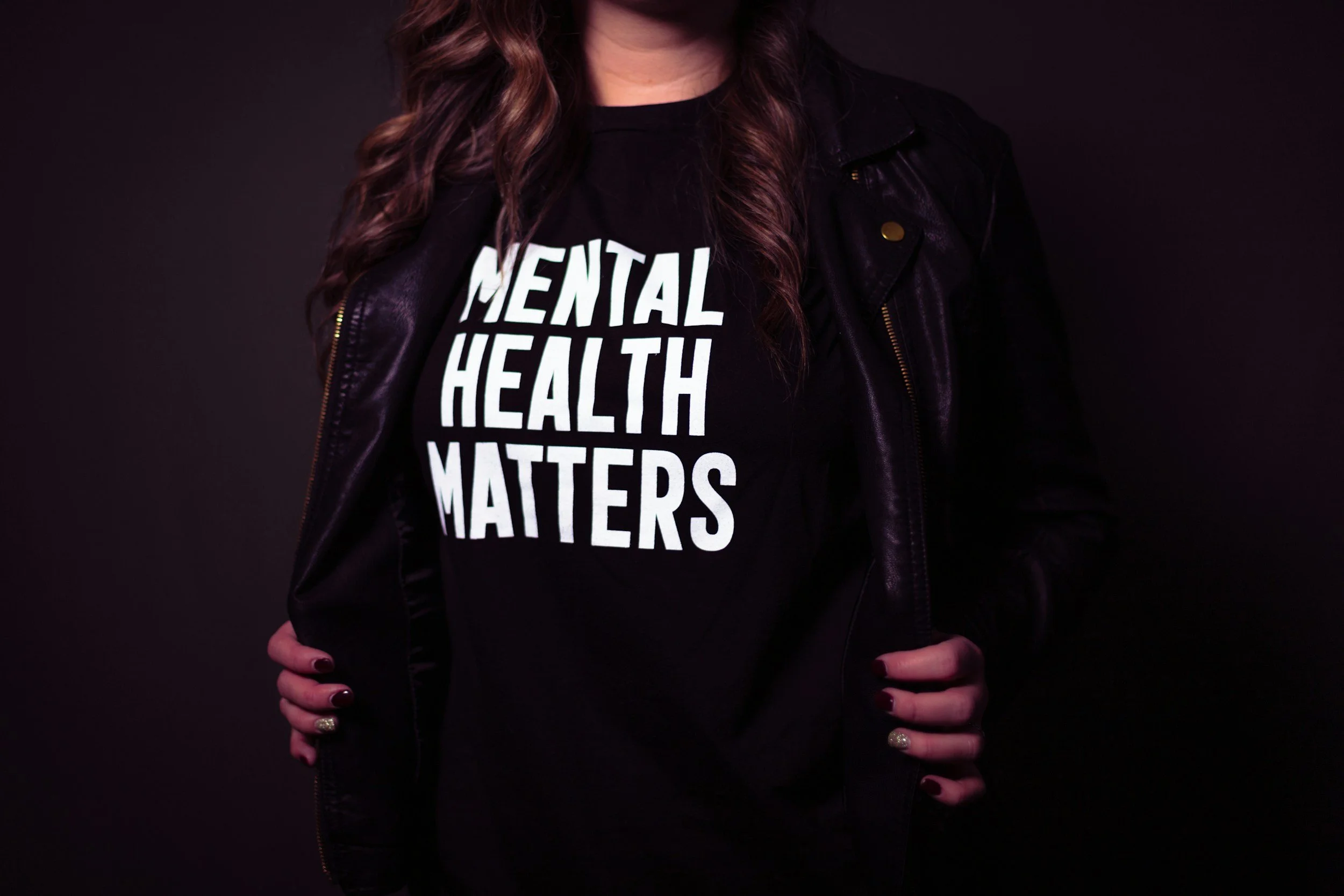Educate and Empower: Understanding Mental Illness
October brings two key moments in the mental health calendar: Mental Illness Awareness Week (October 5–11) and World Mental Health Day (October 10). These events invite us to pause, learn, and reflect on our collective role in fostering understanding and compassion.
As a therapist, I’ve spent years helping clients navigate the challenges of living with a mental health condition. But my connection to this work isn’t purely professional—it’s deeply personal.
I’ve experienced my own bouts of anxiety throughout my adult life, including the intense waves of postpartum depression and anxiety that followed the births of each of my three sons. Those chapters were some of the hardest to navigate, even with my training and knowledge. I’ve also walked alongside friends and family members living with depression, bipolar disorder, and other mental health conditions.
These experiences have taught me two important truths:
Mental illness does not discriminate.
Education and understanding can make an enormous difference in how we experience and recover from it.
What Do We Mean by “Mental Illness”?
“Mental illness” is a broad term that refers to a range of conditions affecting mood, thinking, and behavior. This includes depression, anxiety disorders, bipolar disorder, schizophrenia, post-traumatic stress disorder (PTSD), eating disorders, and more.
The National Alliance on Mental Illness (NAMI) reports that 1 in 5 U.S. adults experience mental illness each year. That means nearly every person either lives with a mental health condition themselves or knows someone who does.
Despite these numbers, stigma and misinformation remain significant barriers. Some people fear being judged, others don’t know where to find help, and many are unsure how to talk about what they’re experiencing.
Common Myths About Mental Illness — and the Facts
Myth 1: People with mental illness are dangerous.
Fact: Most people with mental illness are not violent. In reality, they are more likely to be victims of violence than perpetrators.
Myth 2: Mental illness is rare.
Fact: It’s far more common than most people realize, and it affects people from all walks of life.
Myth 3: You can just “snap out of it.”
Fact: Mental illness is a legitimate health condition that often requires professional treatment.
Myth 4: Only “weak” people develop mental illness.
Fact: Mental illness has nothing to do with personal strength. Genetics, brain chemistry, trauma, and life circumstances all play a role.
Why Education Is Essential
When I was in the depths of postpartum anxiety, I remember feeling ashamed that I wasn’t “enjoying every moment” with my newborns like so many people told me I should. It wasn’t until I learned about the biological and hormonal factors behind postpartum depression and anxiety that I began to feel some relief.
Education about mental illness does more than share facts—it transforms attitudes. It replaces shame with compassion and empowers people to seek help sooner.
Benefits of mental health education include:
Reducing stigma: Knowledge chips away at harmful stereotypes.
Encouraging early intervention: Recognizing symptoms sooner often leads to better outcomes.
Building supportive environments: Schools, workplaces, and families can become safe spaces for open conversations.
Empowering self-advocacy: People can seek the care they need without shame.
The Therapist’s Perspective: Learning in the Room
When I work with clients, education is a central part of the process. We talk about the symptoms they’re experiencing, why they happen, and how they can be managed.
For example, someone with panic disorder might feel certain they’re having a heart attack. Understanding that these sensations—racing heart, shortness of breath, dizziness—are caused by a surge of adrenaline can reduce fear and help them feel more in control.
I’ve seen how even small moments of understanding can bring hope. I remember a client telling me, “Just knowing I’m not broken makes it easier to keep going.” That’s the power of education.
How We Can All Be Mental Health Educators
You don’t have to be a therapist to make a difference.
Share Accurate Resources
Point people to reputable organizations like NAMI, Mental Health America, or the WHO.Model Open Conversations
Share your own experiences when you feel safe to do so—it can be profoundly validating for others.Attend or Host Workshops
Learn alongside others in your community.Challenge Stigma When You Hear It
Speak up when harmful stereotypes are shared.
From Awareness to Action
Awareness is the first step. Action is the next. This could mean:
Advocating for mental health coverage in insurance
Bringing educational workshops into schools or workplaces
Checking in on a friend who’s been withdrawing
For me, action also means continuing to share my own story—because I know someone reading might be where I once was, wondering if they’ll ever feel like themselves again.
How Therapy Supports Mental Health Education
Therapy is both a safe space and a learning space. In my sessions, I combine emotional support with education so clients leave feeling both heard and equipped. We identify triggers, practice coping strategies, and discuss lifestyle changes that support mental health.
It’s not just about managing symptoms—it’s about empowering people to understand themselves fully.
Your Invitation This October
This month, I invite you to learn something new about mental health. Read an article. Watch a documentary. Ask a friend about their journey and listen without judgment.
The more we know, the better we can care for one another.
Author Bio:
I’m a licensed therapist and mental health advocate who understands this journey both personally and professionally. My own experiences with anxiety and postpartum depression, along with supporting friends and family, fuel my passion for creating compassionate, stigma-free spaces for healing.
Call to Action:
If you’re ready to take the next step in understanding your mental health—or supporting someone you love—contact me today. Together, we can replace stigma with understanding and create a future where no one feels alone.

